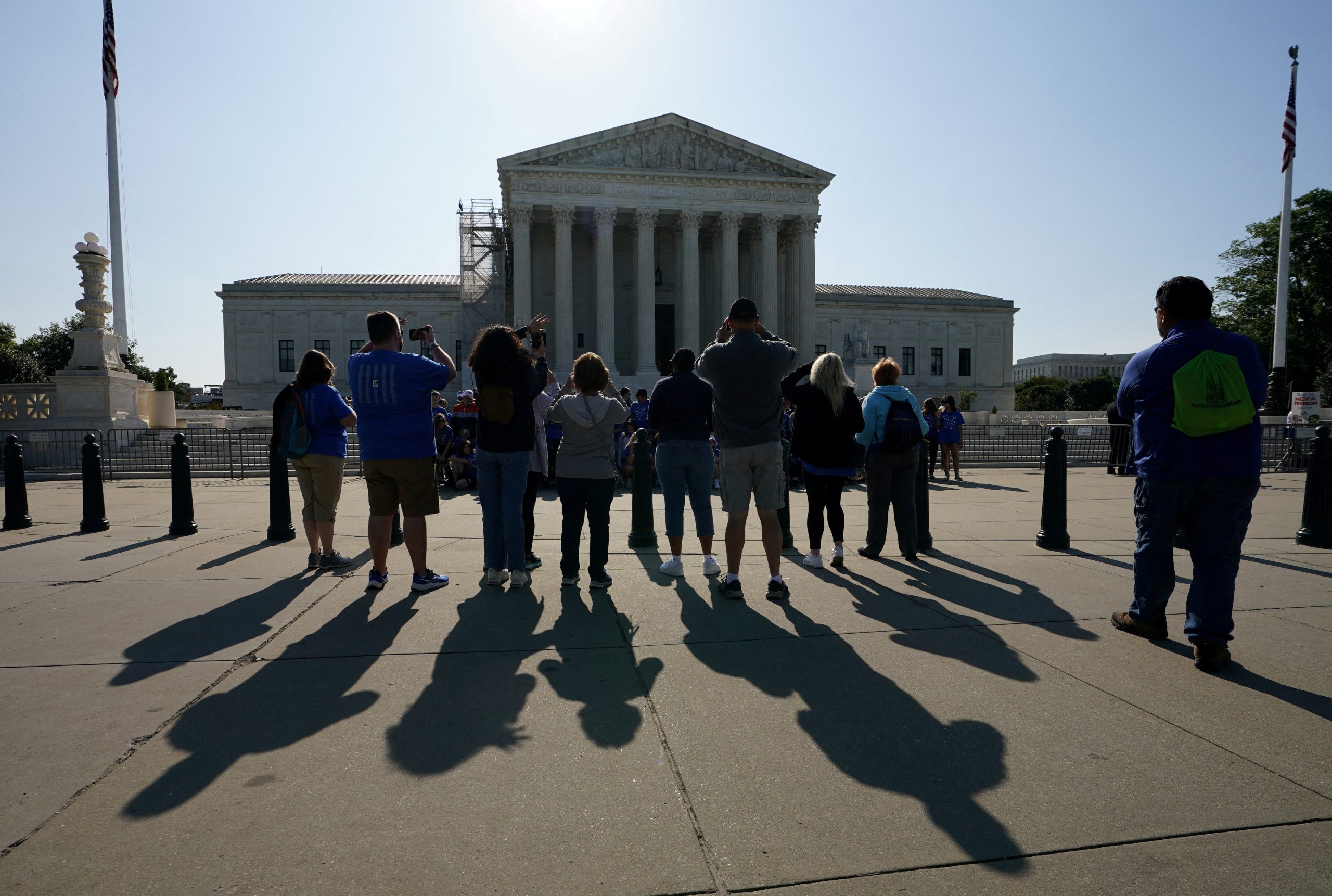
[elfsight_social_share_buttons id=”1″]
The U.S. Supreme Court handed internet and social media companies a pair of victories on Thursday, leaving legal protections for them unscathed and refusing to clear a path for victims of attacks by militant groups to sue these businesses under an anti-terrorism law.
The justices in a case involving Google LLC’s video-sharing platform YouTube, both part of Alphabet Inc, sidestepped making a ruling on a bid to weaken a federal law called Section 230 of the Communications Decency Act that safeguards internet companies from lawsuits for content posted by users.
They also shielded Twitter Inc in a separate case from litigation seeking to apply a federal law called the Anti-Terrorism Act that enables Americans to recover damages related to “an act of international terrorism.”
In both cases, families of people killed by Islamist gunmen overseas had sued to try to hold internet companies liable because of the presence of militant groups on their platforms or for recommending their content.
The justices in a 9-0 decision reversed a lower court‘s ruling that had revived a lawsuit against Twitter by the American relatives of Nawras Alassaf, a Jordanian man killed in a 2017 attack during New Year’s celebration in a Istanbul nightclub claimed by the Islamic State militant group.
In the case involving YouTube, the justices returned to a lower court a lawsuit by the family of Nohemi Gonzalez, a college student from California who was fatally shot in an Islamic State attack in Paris in 2015. The justices declined to address the scope of Section 230, concluding they did not need to take that step because the family’s claims appeared likely to fail given the Twitter case decision.
Section 230 provides safeguards for “interactive computer services” by ensuring they cannot be treated for legal purposes as the “publisher or speaker” of information provided by users.
Calls have come from across the ideological and political spectrum – including Democratic President Joe Biden and his Republican predecessor Donald Trump – for a rethink of Section 230 to ensure that companies can be held accountable for content on their platforms. This case marked the first time the Supreme Court had examined Section 230’s reach.
‘SAFEGUARD FREE EXPRESSION’
“Countless companies, scholars, content creators, and civil society organizations who joined with us, in this case, will be reassured by this result,” said Google General Counsel Halimah DeLaine Prado. “We’ll continue our work to safeguard free expression online, combat harmful content, and support businesses and creators who benefit from the internet.”
Critics have said Section 230 too often prevents platforms from being held accountable for real-world harms. Many liberals have condemned misinformation and hate speech on social media. Many conservatives have said voices on the right are censored by social media companies under the guise of content moderation.
The massacre at Istanbul’s Reina nightclub killed Alassaf and 38 others. His relatives accused Twitter of aiding and abetting the Islamic State by failing to police the platform for the group’s accounts or posts in violation of the Anti-Terrorism Act.
Gonzalez’s family argued that YouTube provided unlawful assistance to the Islamic State by recommending the group’s content to users. In their brief ruling, the justices wrote that they “decline to address the application of (Section 230) to a complaint that appears to state little, if any, plausible claim for relief.”
“Even with the best moderation systems available, a service like Twitter alone cannot screen every single piece of user-generated content with 100% accuracy. Imposing liability on such services for harmful content that unintentionally falls through the crack would have disincentivized them from hosting any user-generated content,” said Chris Marchese, an attorney with NetChoice, a technology industry group that counts Twitter, Meta Platforms Inc and Google as members.
The Twitter case hinged on whether the family’s claims sufficiently alleged that the company knowingly provided “substantial assistance” to an “act of international terrorism” that would allow the relatives to maintain their suit and seek damages under the anti-terrorism law.
After a judge dismissed the lawsuit, the San Francisco-based 9th U.S. Circuit Court of Appeals allowed it to proceed, concluding that Twitter had refused to take “meaningful steps” to prevent Islamic State’s use of the platform.
Conservative Justice Clarence Thomas, who authored the Supreme Court‘s ruling, said the allegations made by the plaintiffs were insufficient because they “point to no act of encouraging, soliciting or advising the commission” of the attack.
“These allegations are thus a far cry from the type of pervasive, systemic, and culpable assistance to a series of terrorist activities that could be described as aiding and abetting each terrorist act,” Thomas added.
In the Twitter case, the 9th Circuit did not consider whether Section 230 barred the family’s lawsuit. Google and Facebook, also defendants, did not formally join Twitter’s appeal.
Copyright 2023 Thompson/Reuters
